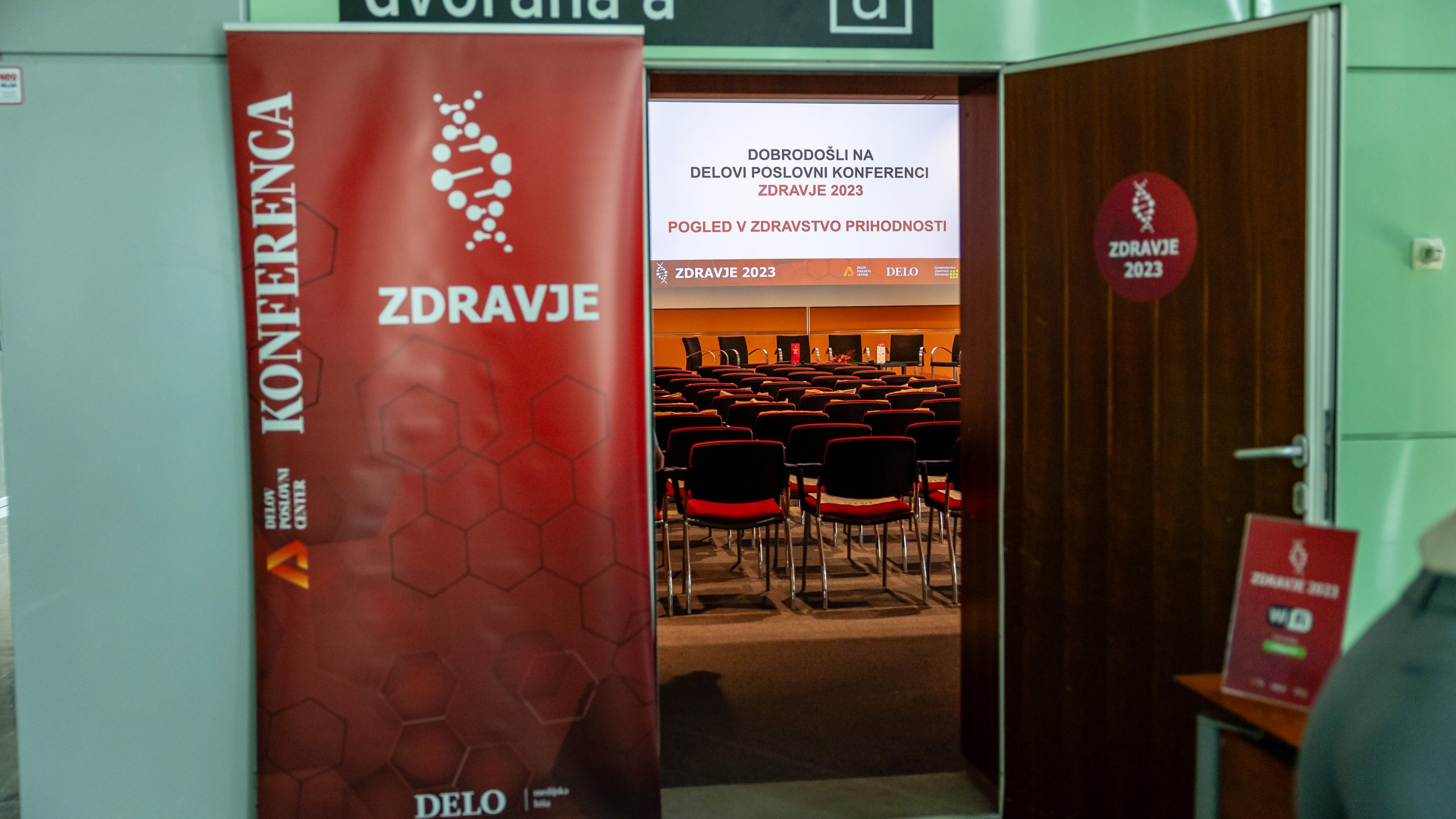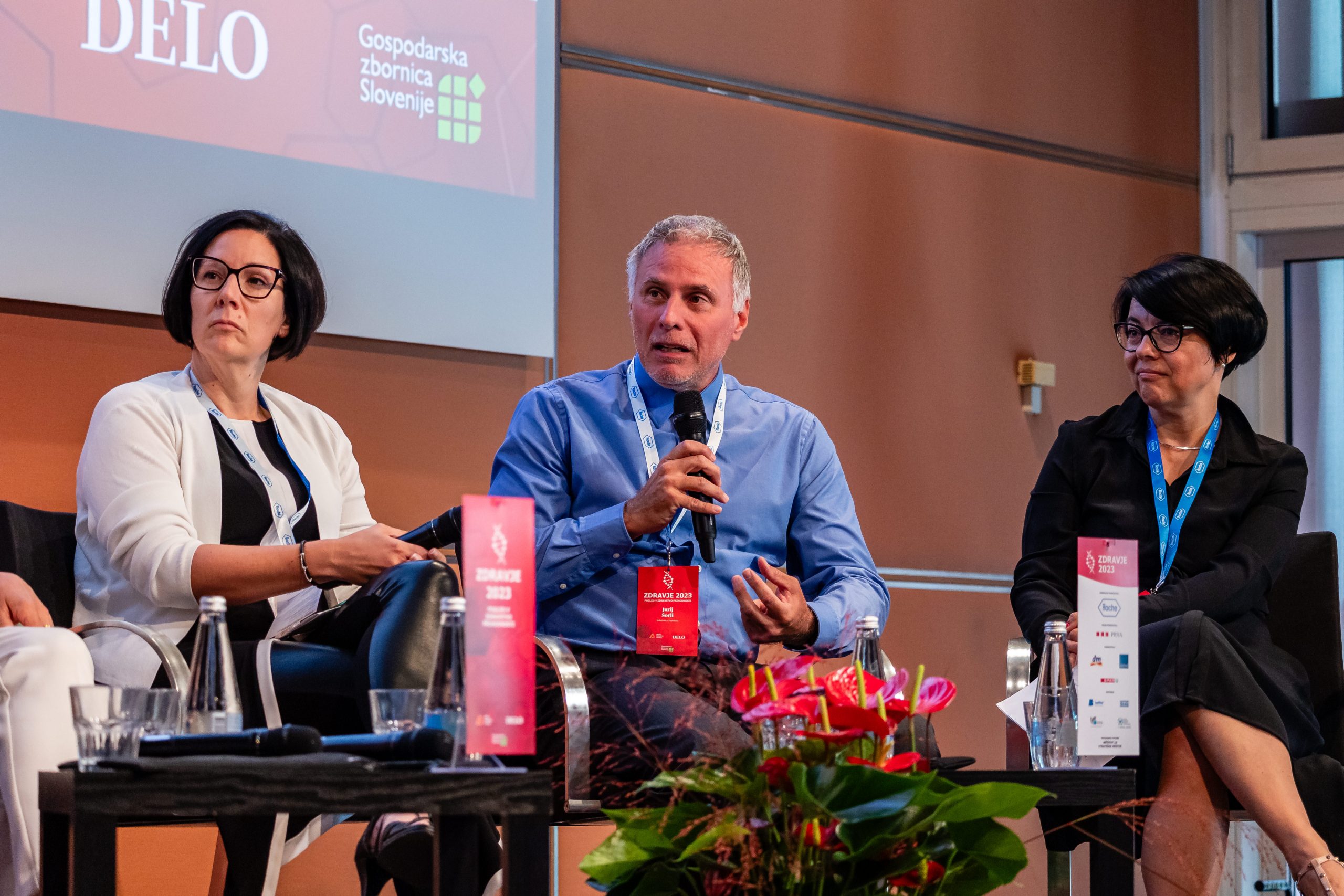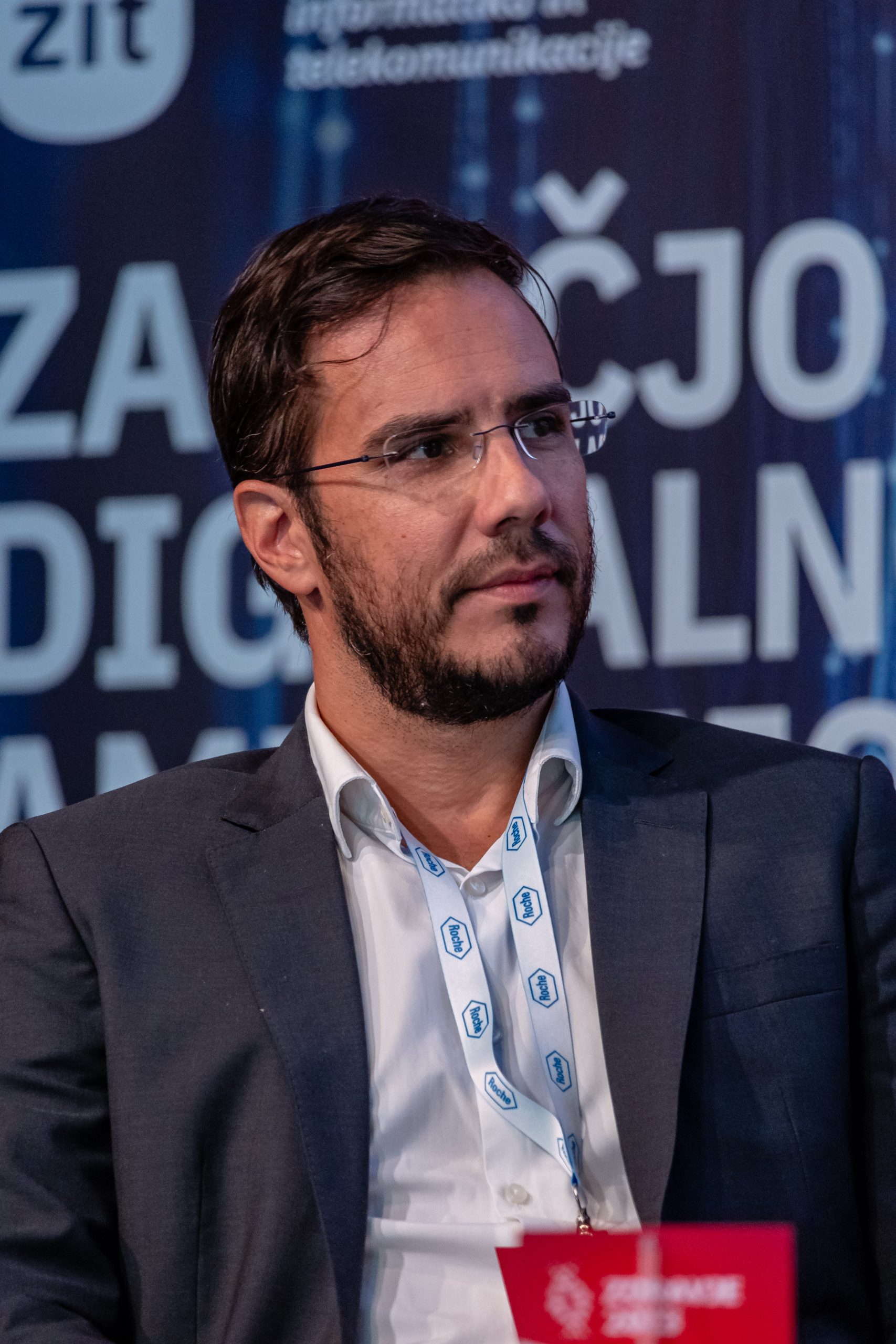Business Conference Health 2023
Shaping Modern Healthcare Involves Mutiple Stakeholders
The Adriatic team
Setting up a modern, resilient healthcare that caters to current needs with patient at the centre was the focus of the discussion at the conference Health 2023: A View into the Future of Healthcare. The conference was organised by Delo Media House, in collaboration with the Chamber of Commerce and Industry of Slovenia and program partner, the Institute for Strategic Solutions.
A robust, inclusive digital health system is a necessity and its establishment has to engage both patients and stakeholders involved in their care, said the keynote speaker Stefan Buttigieg MD, a public health medicine specialist at Malta’s Ministry of Health. The core of such system is strong digital infrastructure and standardised data that will support the use of AI in the future, he added. However, Buttigieg cautioned that establishing such a system requires an efficient and streamlined small team, with a full commitment from all stakeholders, including politicians across the board. Here, regular and transaprent communication is key, he concluded.
AI will have an increasing role in healthcare
The importance of the role that AI will play in healthcare provision was also underscored in the following panel, moderated by Petra Juvančič, Executive Director of the Manager Association. Nataša Hajdinjak, CEO of Prva Osebna Zavarovalnica, arguedthe AI will significantly impact our healthcare system in the future, while Dr. Jurij Šorli, Director of Topolšica Hospital, sees its role primarily in accessing data crucial for healthcare services. Šorli also emphasised that a well-functioning healthcare system has to rely on empathy, solidarity, and tolerance.
Prof. Dr. Petra Došenović Bonča, associate professor at the University of Ljubljana’s Faculty of Economics, pointed out that one of the key challenges in the current public healthcare system is finding ways to adapt and respond more quickly. In the public healthcare system there are no market incentives, so we need different incentives that will lead to change, she noted, emphasising that comprehensive approaches are needed when introducing changes:
“When we talk about healthcare strategy, we cannot discuss it without structural reforms related to the development of the Slovenian economy. I also believe that effective healthcare cannot be achieved with soft budget constraints. In Slovenia, we need a combination of funding sources, and we also need to eliminate the negative attitude toward voluntary health insurance.«
Dialogue between ministries is key
Urška Močnik, Director of the Idrija Retirement Home, highlighted the disconnection between the healthcare and social care sectors, which are overseen by multiple ministries. Under the current government, three ministries are oveseeing the sectors, with each advocating different aspects, and the lack of dialogue between them is creates significant challenges. She pointed to the Finnish model as a good practice example, where unified ministries oversee both health and social care.
Štefanija Lukič Zlobec, President of the Spominčica Association and the Patients’ Association, also emphasised there is lack of dialogue in Slovenia among the stakeholders in healthcare and social system. “Representatives of the Medical Chamber, the Ministry of Health, the Ministry of Labor, the National Institute of Public Health, insurance companies, hospitals, and healthcare centers should meet once a month and solve things. We no longer have time. Time is crucial,” she remarked.
Data is crucial for improved treatments and outcomes
Tjaša Sobočan, Advisor to the Minister for Digital Transformation, discussed strengthening trust in digital technology with guests at her panel. According to Dr. Rado Pišot, Director of the Scientific Research Center Koper, medical treatments contribute 20% to establishing an effective healthcare system, while other factors, such as preventative medicine, play a significant role.
Janez Bernik, Head of Strategic Partnerships at Roche Slovenia, emphasised the transformative potential of data. When collected and used effectively, he explained, data can significantly impact the quality of diagnostics and treatment outcomes. A case in point is the global cancer patient registry developed by Roche, which will enable oncologists to find cases similar to their patients, including treatment methods.
Anže Droljc, director of business development from Better, a global provider of digital solutions for healthcare, does not see data fragmentation as a problem. However, it is important that patient data are stored independent of applications, as defined by the new Slovenian legislation. It is also crucial that data follows the patient, which will helpt to overcome the challenge of actively managing a patient’s record at the point of care in real time, he added.
Participants at the conference also highlighted the challenge of insufficient digital literacy when discussing the importance of building trust in digital solutions. Only about half of the Slovenian population has basic digital competencies.
Discussing advanced solutions aimed at enhancing healthcare digitisation during his presentation, Preben Terp-Nielsen, CEO of the Abena Group, also emphasised the importance of placing the patient at the center. He added that technological advancements must consistently align with high-quality service delivery.
Eva McLellan, CEO of Roche Slovenia, pointed out that the benefits of digital technology extend beyond the use of mobile devices, but it can significantly improve healthcare as a whole. For example, the data that can measure and predict population health, can support healthcare professionals in their decison making.
Alenka Umek, Head of the Public Procurement Department in Healthcare at the Chamber of Providers of Medical Technology and Services (MedTech Slovenia), presented a treatment approach based on shared responsibility and outcome-based payments. Such approach would have a positive impact on multiple stakeholders, including patients and their families, the healthcare system, as well as the industry, she argued.
















